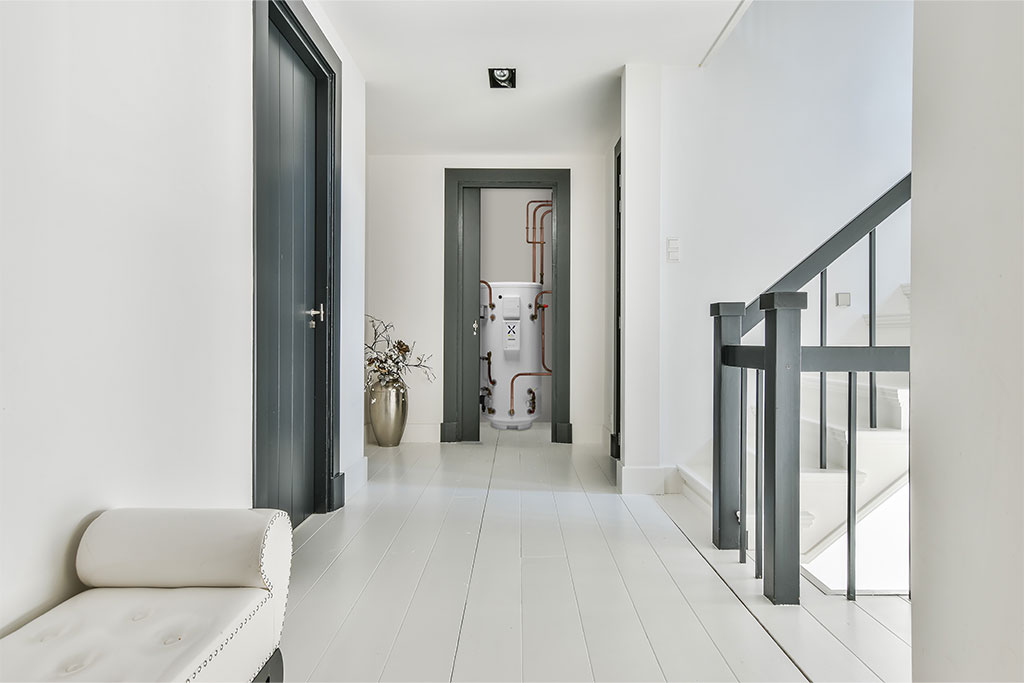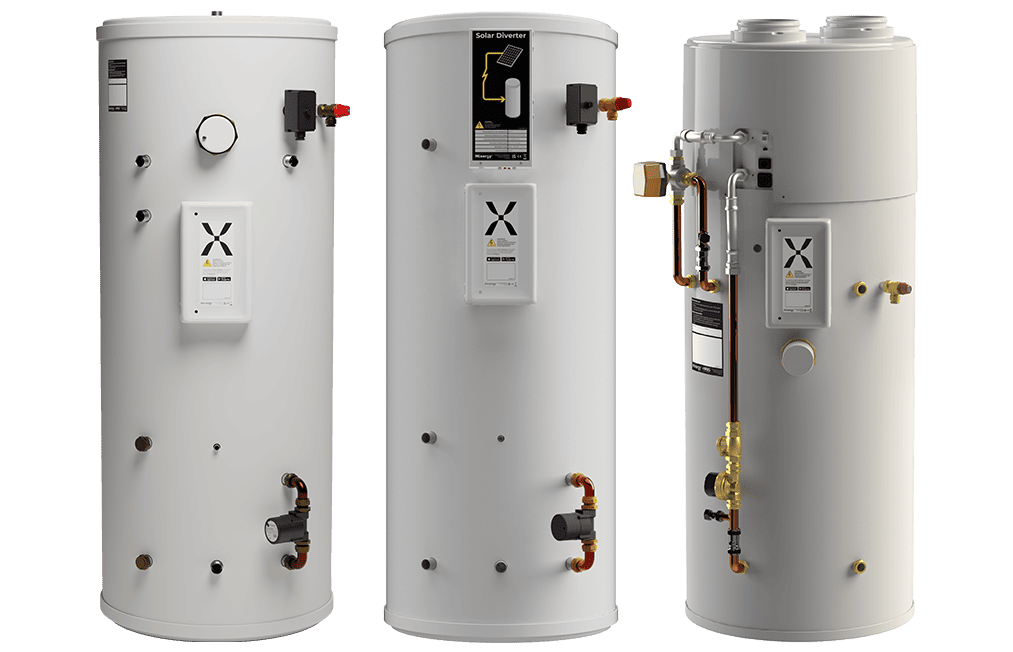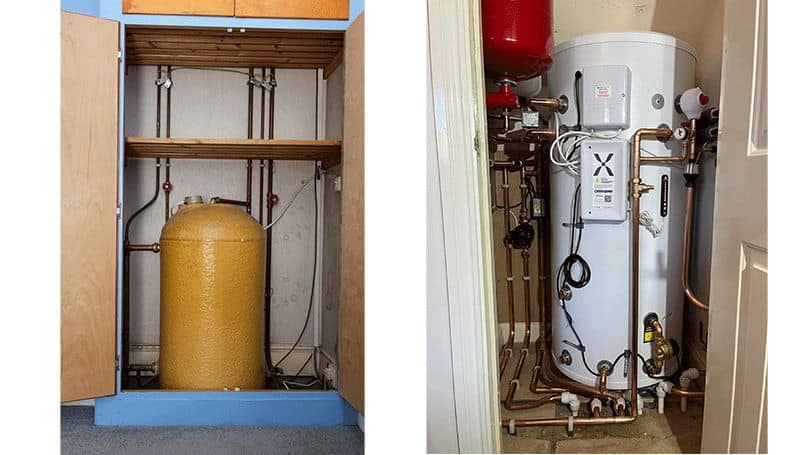
Hot water cylinders and choosing the best option for you
Hot water cylinders are an essential component in many homes, providing reliable hot water storage. The Government’s Heat and Buildings Strategy sets a timeframe to phase out the installation of natural gas boilers beyond 2023, so as more homeowners are moving away from instant hot water generated via gas combi boilers, the use of hot water cylinders is vital – especially for those looking to heat their water via renewable energy sources like solar PV or green technologies like heat pumps.
When it comes to choosing a hot water system for your home, it’s essential to understand the different options in order to select the best solution for your home. Investing in the right one will save you both money and energy.

How does a hot water cylinder work?
Hot water cylinders are used in domestic and commercial buildings to store hot water for when it’s needed, be that via your taps or shower.
Two main types of hot water cylinder are available: a pressurised unvented hot water cylinder or a vented hot water cylinder.
Pressurised unvented hot water cylinders offer a convenient and efficient solution for your hot water needs. Unvented cylinders are supplied with water directly from the mains supply, which is pressurised, offering a much better flow rate for your shower or bath taps. The location of an unvented cylinder is flexible within your home, thanks to this supply directly from the mains.
Unvented systems are often quieter, and as they are sealed, the water is not at risk of contamination.
Vented hot water cylinders, however, are supplied via an external cold water ‘header’ tank (often located in a loft space), which is gravity-led to build pressure.
A vented cylinder needs to be located directly below the cold storage supply to generate enough pressure for flow around the house.
Unvented cylinders are more common in UK homes, especially in older houses where old cylinders were made of copper with an additional foam or insulation ‘jacket’ wrapped around them.
However, new energy-efficient Mixergy unvented cylinders are made of stainless steel and look much better!

Indirect vs Direct hot water cylinders
When selecting the correct type of hot water cylinder for your home, it’s also essential to understand the differences between Indirect and Direct systems – which option you need will depend on the energy source you use (or plan to use in the future) for your hot water.
Indirect hot water cylinders are used in conjunction with an external boiler (often gas or oil supplied). A boiler heats an internal coil inside the cylinder, heating your water.
Indirect cylinders tend also to be fitted with a direct backup, i.e., an immersion heater element – so if your boiler breaks or cannot provide energy, you can still heat water if needed.
A Mixergy Indirect cylinder can be both a vented or unvented cylinder.
Indirect cylinders are especially useful for larger households or those with multiple bathrooms, as it ensures you always have hot water during peak usage times.
An indirect hot water cylinder also offers consistent water pressure, allowing you to enjoy a powerful shower or fill your bathtub without interruptions.
Indirect hot water cylinders can also be easily integrated with renewable energy sources such as solar panels, allowing you to reduce your carbon footprint and save even more on your energy bills. This makes them an excellent choice for environmentally conscious homeowners.
Direct hot water cylinders heat water through an immersion heater within the cylinder. This option is used when the home does not have a boiler installed (if they have no connection to a gas supply or the homeowner lives within a flat, for example). They use a direct electricity supply to heat the immersion element.
Direct cylinders are a reliable choice for smaller homes, those with low hot water demands, or even those who use Economy 7 electricity tariffs, providing cheap electricity at night, which is then used to heat the water.
A Mixergy Direct cylinder can also be both a vented or unvented cylinder.
So, whether you choose a direct hot water cylinder or an indirect one, it’s important to weigh the pros and cons of each option.
Consider your household’s hot water needs, the size of your home, and your energy-saving goals. You can enjoy endless hot water and the comfort and convenience you deserve with the right choice.
All Mixergy smart hot water cylinders help you save energy by reducing your gas consumption. They are also future-proof for use with any energy source, whether a boiler, heat pump or solar. They also come with a 25-year warranty as standard.
What’s not to love?
Whether you’re a homeowner, Installer, housing provider or new build developer, Mixergy is easy to source and specify as part of your next project.

